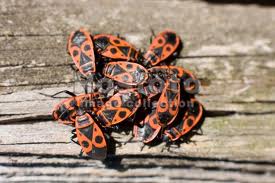 Corn-soldier is a small insect from the family of Krasnoclops, for all representatives of which is characterized by bright coloring: a combination of shades of red or yellow with black. Most of the species belonging to this family lives in tropical latitudes, only some of them are common in moderate climate. The length of the bug-soldier reaches, at most 10-11 mm, however, thanks to the red color of the pumped with an exotic black pattern. Wellness is noticeable. Little children willingly watch these small "bugs", which already early in the spring can be seen in the sun in a sunshine near the panties, fences, fallen trees. Live "soldiers" by the colonies. They eat, as a rule, fettic fruits, seeds. Sometimes the petty insects serve them with food.
Corn-soldier is a small insect from the family of Krasnoclops, for all representatives of which is characterized by bright coloring: a combination of shades of red or yellow with black. Most of the species belonging to this family lives in tropical latitudes, only some of them are common in moderate climate. The length of the bug-soldier reaches, at most 10-11 mm, however, thanks to the red color of the pumped with an exotic black pattern. Wellness is noticeable. Little children willingly watch these small "bugs", which already early in the spring can be seen in the sun in a sunshine near the panties, fences, fallen trees. Live "soldiers" by the colonies. They eat, as a rule, fettic fruits, seeds. Sometimes the petty insects serve them with food.
Officially, the bug-soldier does not apply to the pests of garden and garden plants. So, in one of the registers compiled in the last third of the twentieth century, several dozen species of bugs are made of danger to different cultures. Among them are berry and pear, cabbage, beet clop, meadow, field, striped Italian bug, knop-turtle and others. The bug-soldier in this list is absent, however, in recent years, both dacms and lovers and scientists are surprised that this insect unexpectedly began to turn into a real pest: the colony of "soldiers" attack the beds of radish and cabbage, eat potatoes and potatoes and Tomatoes, and do not even eat bitter leaves of Khrena. The owners of the household plots complain that these bugs suck juices from the berries of grapes and even flowers - for some reason "soldiers", insects by nature are not aggressive, especially "loved" lilies, and cause unprecedented damage to these beautiful plants. In addition, they are able to significantly harm the seedlings and sowing. Therefore, many are interested, how can you get rid of them on the plot.
Specialists categorically do not recommend using insecticides for extermination of this, by and large, non-hazardous insect, like a bug-soldier. It is much more reasonable to collect pests by hand, because the consequence of spraying the knocked out cabbage can be a serious poisoning that the garden will get, taking a vegetable after removing it from the bed. For the time left before harvest, the time of Piva simply will not have time to decompose on the safe components, therefore it is desirable to fight with these insects in a safer way. If you do not live constantly in the country and can not collect pests from bed daily, use natural, safe agents for spraying, ash solution, decoction of lung husk.
Klop-soldier does not endure the neighborhood with clockon-cumin '. Gardeners planted one of her species on the plot (most often it is cuminicifuge heartset), noted that in the year insects disappear. Not only enough innocuous "beetle", a soldier, but also other varieties of bedbugs stop harming forever. In addition, this plant is extremely beautiful: high (up to 2 meters), with dissected openwork leaves and snow-white inflorescences, it attracts a glance and can become a real decoration of your site.
Selecting the place for the clockon, remember that he loves shaded places and wet soil. It is necessary to provide for it to support. In addition, it should be borne in mind: this is a perennial plant of poisonous, in all parts it contains alkaloids. The roots and rhizomes of certain species, for example, the clockon of Dauri and a busy, dugged in the fall, are used in folk medicine for the preparation of antitussive, antlegum and sedatives. However, if you still do not have the experience of healing herbs, you should not use the clopogon for independent treatments so as not to harm yourself and your loved ones.



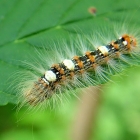
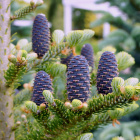
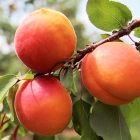


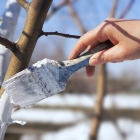
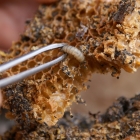

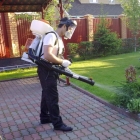
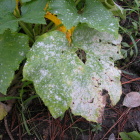
On our garden, the soldiers are harmful only with cruciferous. We collect pest hands - helps. In rainy weather on the plants of the bugs is not observed.